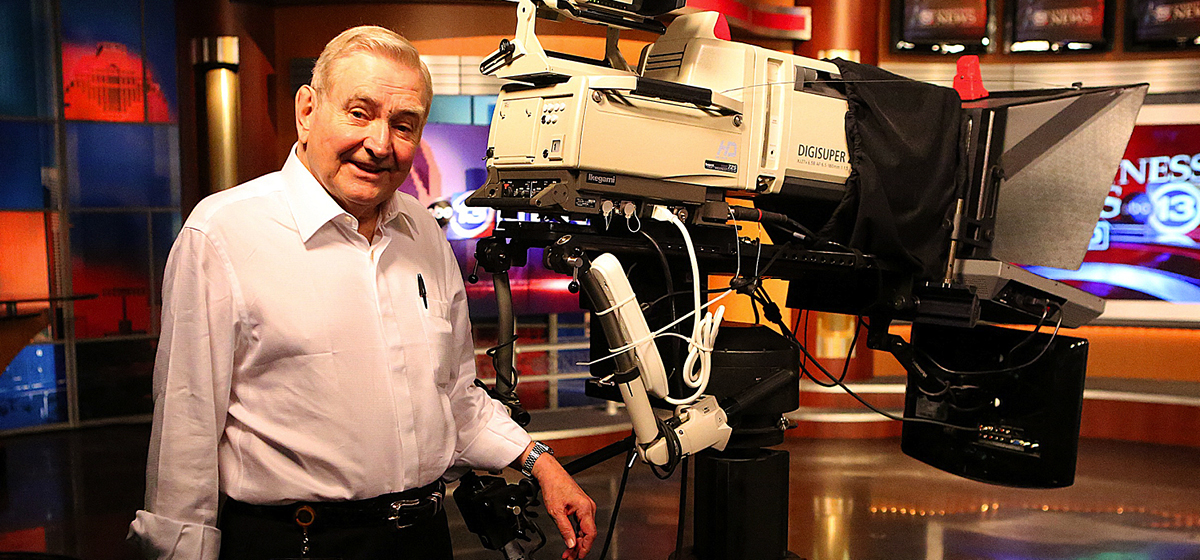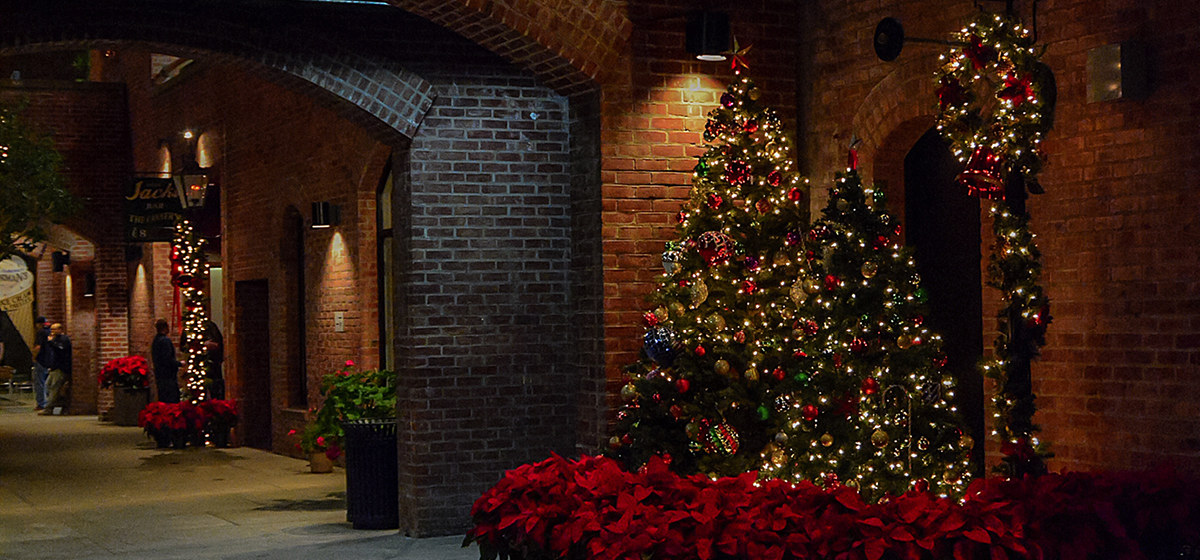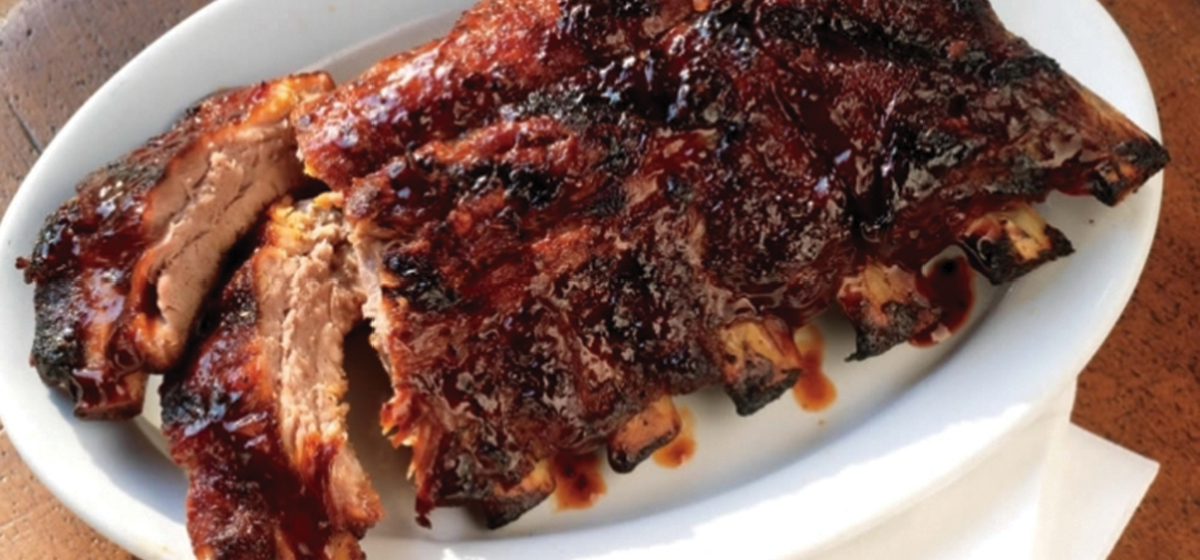Barney Driscoll doesn’t always appreciate being the center of attention, but he was involved in many attention-worthy experiences. He participated in 30 bombing missions in World War II, including bombing Omaha Beach on D-Day. He also flew alongside Jimmy Stewart, the famous Hollywood actor. He was married for 65 years, raised four children, and he currently spends many days volunteering at the HEARTS Museum, continuing his life of service into his 90th year.
I was born in the little town of Parnell, Iowa.
I don’t know that I knew. I was mechanically inclined, and when I volunteered for the military, I wanted to be an aircraft mechanic. When I took the tests, I turned out to be suited for both a mechanic and a radio operator, but they needed radio operators more.
In December 1942, shortly after I turned 18.
Well, as far as skills, I had to learn the Morse Code. Seating-wise, the radio operator sits behind the co-pilot in a B-24, but anywhere you sit could be dangerous. On one flight, I was looking out the window for a moment, then I moved my head back, returning my attention to the radio. When I did, a hunk of shrapnel came through the same window I was just looking out. It was a near miss. It hit the top turret and bounced down into the flight deck. I should have picked it up and kept it, but I wanted nothing to do with it (laughs).
Well, you just keep flying, if you can. It depends on where the hole is and how big it is.
Well, yeah. But it just depends. Some of the holes were pretty large; sometimes there were a lot of them. One time, we were on a plane that had as many as 300 holes in it.
Oh, no. When you’re on a flight like that, you land and then head to the latrine. We let the ground crew count.
The first plane we had got shot down. We were training in Caspar, Wyoming, and our flight instructor wanted to get into battle himself. He felt like he wasn’t doing his duty as an instructor. Shortly after we went overseas, here comes our flight instructor. When he was assigned his first mission, he didn’t have a plane. He used ours, and he was killed on his first mission, and our plane went down.
I guess one of the worst times was when a couple of the guys were killed. We had several die or get hurt while I was there. On another mission we got shot up real bad. We had one engine out and one engine on fire. We got the fire out, came out over the North Sea, and crash landed at the British base. Two of us had to go to the hospital, and it took me about three weeks to get back. The folks around the base assumed I was a POW or dead, and they took my stuff. I lost my short-snorter bill.
It’s a flight-crew tradition. When a member of the air crew flies across an ocean, he has his buddies sign a dollar bill, the short-snorter bill. Then, when everyone lands safely and gets to a bar, the guy with the least signatures on his short-snorter bill buys the drinks. But as I said, mine was taken when they thought I had gone down. Short-snorter bills are meaningful to the air crew, but this was particularly meaningful because Jimmy Stewart had signed it.
My crew was one of the first to fly with radar, so we flew lead with other bomb groups, including Stewart’s 453rd. You know, when Stewart went to enlist, they wouldn’t take him. They said he was too skinny. He was 6’4”, skinny as a rail. But he ended up getting in.
That’s right, and once he started getting military pay—which was $21 a month—he sent his Hollywood agent $2.10 every month as commission.
He came to all of our reunions until about 1980 or so. His doctor said his health wouldn’t permit him to travel. I wrote him a letter that year telling him we missed him, and about two weeks later I got a response from Stewart thanking me for remembering him and sending the note. It’s on file here at the HEARTS Museum.
He was that way. With us, he was just one of the guys, although he was older than we were. He was in his mid-30s when he signed up, a good fifteen years older than I was.
Well, everyone knew the invasion was coming, but nobody knew when. We learned the night before, when we were given our briefing—at around 10:00pm. After that, we had to try to get some sleep, but we took off around 2:00am, and we made it over Normandy around 6:30am.
Omaha.
Yes. The problem was the weather. We couldn’t see. We erred on the side of overshooting our targets. If we undershot them, we would have bombed our own men, which would have been terrible.
France, Holland, Belgium, Poland. I flew 30 missions in all, and sometimes even our leave time could be dangerous. One time, a fellow named Joseph W. O’Leary III and I had a three-day pass in England, and we stayed at the Piccadilly Hotel in London. But the Germans were launching rockets at England, and we could hear them exploding. O’Leary says, “Hey, let’s go see what the deal is on those bombs,” which may not have been the smartest thing for us to do. We made it through the bombings, but that night in the hotel it got worse. The building was shaking, and it shook so bad that one of the signs on the wall fell down. I kept that sign. (Points to Piccadilly Hotel sign, which is on display in the HEARTS Museum.) It says, “Visitors are advised not to leave their keys in the door”!
No, I didn’t experience some of the problems you hear about.
I worked for a Chevrolet dealer, then an Oldsmobile dealer as parts manager. I went to work as a salesman for an electrical company in Davenport, Iowa. But I was on the road a lot, and it bothered my wife, because driving in the snow can be dangerous. So I ended up taking a job in Houston in 1962, going to work for an electrical distributor. My job was to sell transformers, anything involving electrical maintenance. Gulf Oil, for example, was one of my customers.
Until 1987, when I retired.
Just after the war. She was going to the University of Iowa, and it was a Sunday afternoon. I was with a few guys, and we ran into her and her friends. We hit it off, and I ended up giving her a ride home that day. That was in 1946, and we were both about 22 years old. We were married the next year. She was a good gal. Her name was Emeline Rosalia, but she went by Emme.
We were married on Friday, April 13, 1947, and we were married for 65 years. We traveled a lot later in life, going to reunions for the 389th and 453rd bomb groups with the 8th Air Force, 2nd Air Division. We went to England, Ireland, and a lot of US cities—Tampa Bay, Chicago, St. Louis, Pittsburgh, Philadelphia. We had a good life, but she passed away a little over a year ago.
They all had their appeal, but I think Philadelphia was the most interesting. Emme was a descendant of one of the Declaration of Independence signers, John Hart, and that added something to our visit there.
Emme and I had four children, one of which was a granddaughter we adopted.
Well, the first event I was involved in was in 1995, with the city library. We brought in memorabilia, and kids came in to learn about the war. But I look back on that event, and I see the pictures, and most of the folks who helped with that event are now deceased. But I’ve been volunteering ever since, and Emme volunteered as much as I did until she passed away.
Barney and Emme Driscoll received the Volunteer Eagle Award issued to the “Volunteer of the Year” for the HEARTS Museum. Their daughter Carolyn recently won the award in 2013.
Yes. Most of our flight crew made it through the war, but that was seventy years ago. I’m the only one left now.
Of the 16 million who served in World War II, approximately 1 million are still living as of 2014.
Yes. As a combat crew, we did everything together. When we were in training in Wyoming, some of the crew’s wives would cook spaghetti and invite everyone over for dinner. When we got to England, we did things together. We were like a family. We were close. We didn’t do anything special. We did what everyone else did. But we were lucky, and most of us survived.
Barney Driscoll was awarded the Distinguished Flying Cross, four Air Medals, the Purple Heart, and the European Theater Medal with seven Battle Stars.



